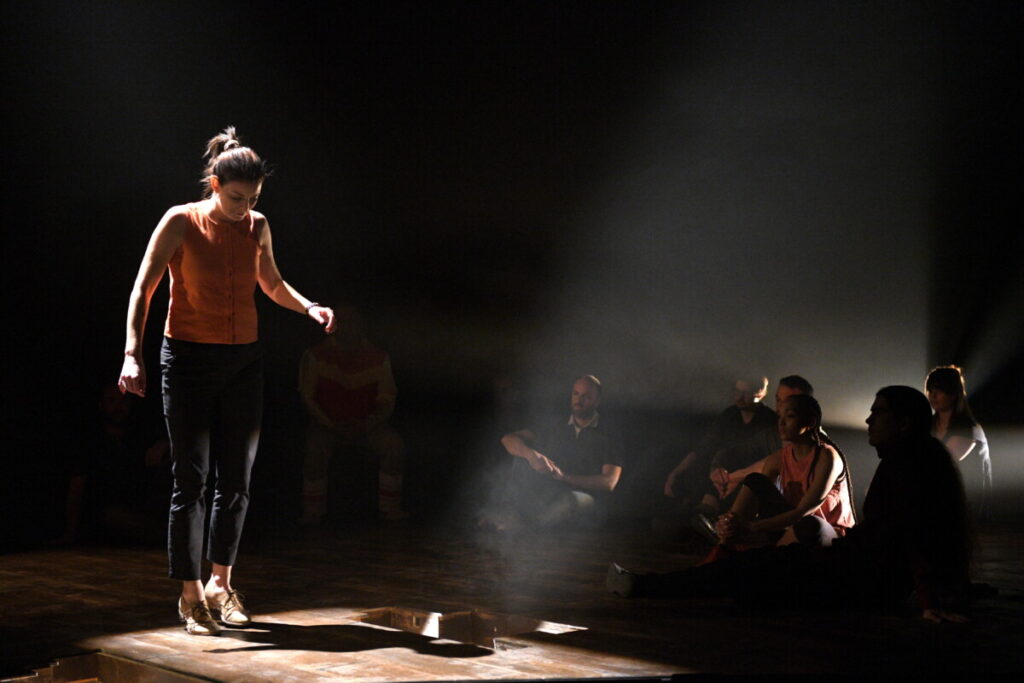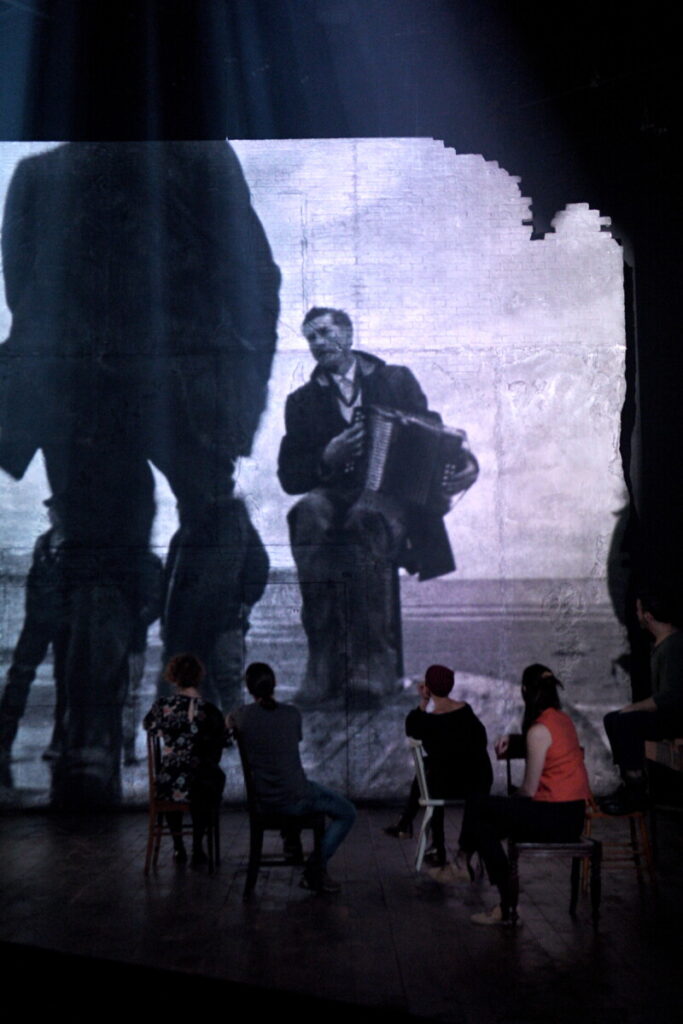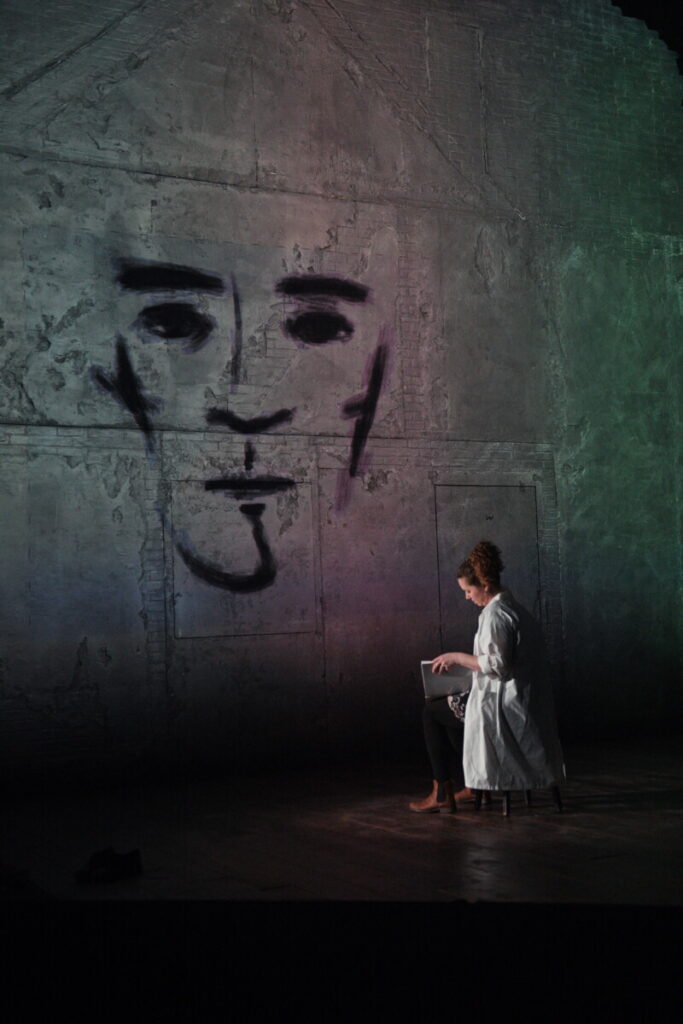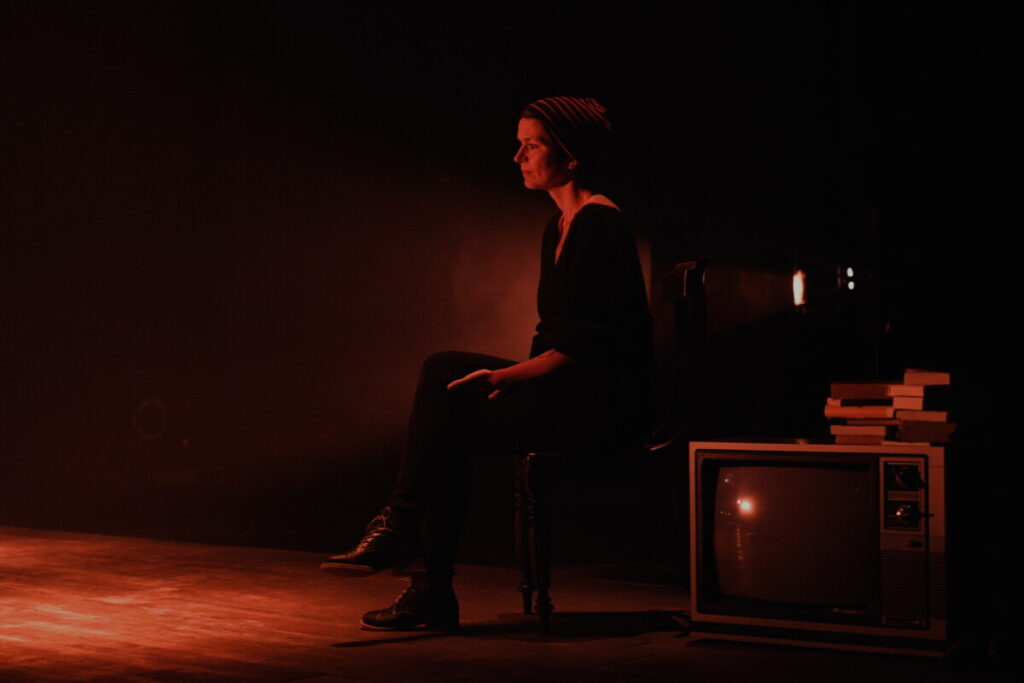Pas Perdus | Documentaires Scéniques presented this year at the Théâtre du Nouveau Monde
The Théâtre du Nouveau Monde presented Pas Perdus from Feb. 24 to a crowded room filled with an excited public.
The design and direction of the play was helmed by Émile Proulx-Cloutier and written by Anaïs Barbeau-Lavalette, who also acted as a silent narrator.
The performance was prefaced with a short reading of the Ukrainian play A Dictionary of Emotions in a Time of War to commemorate the anniversary of Russia’s invasion of Ukraine. Theatres across Montreal read excerpts to signify their solidarity with Ukrainians. The crowd was extremely moved.
The play centers around eight characters, who seem to at first live categorically different lives, but are in fact united by their passion for dance. They are introduced within their life stories, and how dancing gigue orients their existence.
The Quebecois gigue was inspired by Irish stepdancing upon their immigration to Canada in the late 19th century. It is a lively dance that consists of steps, the last one being more emphasized.

It is danced alone or in front of an audience, usually in a room, each dancer revealing their steps. Most Quebec gigues dances are on a two by four tempo, while some places like Outaouais dance on three by four tempo. Gigue is a staple of Quebecois culture.
Pas Perdus was conducted in a unique fashion, as characters did not speak, while a voiceover resonated between them, composed of excerpts from a podcast series Barbeau-Lavalette had created, centering the voices of the dancers.
The actors were merely dialoguing through the movement of their bodies. This silence plays a symbolic role in the demonstration of dance as a language, and of spoken words as only parallel to the meaning of dance. They are introduced within their life stories, and how dancing gigues orients their existence.


Each character is introduced separately, completing their daily tasks while the voiceover explains their lives. The first character, Réal, is from a rural town and spends his time knotting a pair of snowshoes and explains how dancing is a part of who he is, while others like Odile are presented in the workspace as the voiceover explains their life path, and what brought them to dance.
This play questions the meaning gigue has in Quebecois culture, the shame that surrounds the dance, and the risk of forgetting it as time passes.
The play layers on the tone of humour despite difficult times.

Barbeau-Lavalette discusses themes of shame around Quebecois culture, and how it directly produces erasure. One character talks about “collecting steps,” as she meets people within the gigues community, learns their unique steps, and is thus able to carry them with her. This prevents the steps from being erased, even when the person dancing gigue dies.
Pas Perdus is a demonstration of the adaptation of Quebec culture to modern times, noting the importance of not constraining our history to the past. Although there are fewer people dancing gigue, culture cannot be forgotten. This play is an homage to preserving culture and steering it away from erasure.




